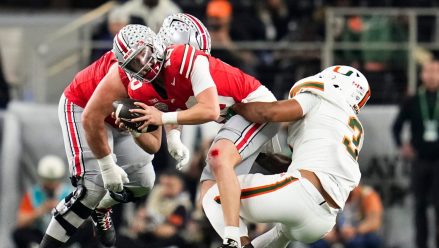David Rebuck, a former director of the New Jersey Division of Gaming Enforcement and a scholarly voice for the United States sports betting industry since its nationwide expansion eight years ago, called prediction markets as sports betting platforms “wrong” and came very close to calling them an “evil’ in a podcast this week.
Rebuck, appearing on the World Series of Politics podcast hosted by Fanatics Betting & Gaming Vice President of Government Affairs Brandt Iden and gambling industry consultant Brendan Bussmann, implored more states to join Maryland, Nevada, and New Jersey in pushing back against Kalshi’s claims that it can offer national sports betting, even in states where it hasn’t been legalized, under the federal auspices of the Commodity Futures Trading Commission (CFTC).
“Join us in New Jersey because if not …” Rebuck warned. “And there’s an old saying that JFK said. I always say this to people: ‘The only thing necessary for triumph of evil is that good men — and I’ll say women — do nothing.’
“And if you want to sit on the sidelines and do nothing … I’m calling prediction markets, maybe strongly … is it evil? It’s wrong. Because in sports wagering, it’s gambling.”
Rebuck conceded that if “people want to gamble on that type of nonsense” such as weather or pop culture, the CFTC is fully suited to regulate prediction markets.
“OK, federal government, that’s your new derivatives,” he said. “It’s not sports wagering.”
Rebuck rallies states, sees SCOTUS ruling
Rebuck believes that the legal campaign being waged by Maryland, Nevada, and New Jersey attorneys general and California tribes against Kalshi, which is attempting to fend off cease-and-desist orders, will eventually reach the Supreme Court.
“It’s got to be decided at that level,” he said. “And can it get to the Supreme Court and be decided before you have a change in administration? And will it then be reviewed politically by the federal government at that point in time? It can always be reviewed by the federal government.”
Under the Trump Administration, crytpo exchanges and prediction markets appear ascendant, and Donald Trump Jr. is a strategic advisor for Kalshi and Polymarket, which plans to soon relaunch under CFTC purview in the U.S.
Rebuck said states with established legal sports betting economies might be better equipped to fight prediction markets’ drain on tax revenue because bettors there have already bonded with licensed gambling brands. The 11 states without legal sports betting — including two of the three most-populated in California and Texas — might be more susceptible to citizens latching onto prediction markets, he said.
“When you don’t have that experience legally — the legal market — the prediction market can come in fast and furious, have lots of extra dollars for marketing, and do a yeoman’s job in recruiting people to gamble,” Rebuck observed. “And most people, John Q. Citizen, when you see the advertising, they’re going to think they’re gambling legally. They really are. And quite honestly, there aren’t any consequences to the gambler because it’s not a crime.”
Rebuck unchained: Sweeps had a chance
Rebuck, who now operates a consulting agency, thanked Iden and Bussmann for not asking him onto the podcast earlier because “I would not be able to speak candidly in my past role.” That included his experience with sweepstakes casino operators in New Jersey.
Rebuck said that he told sweeps operators when he was director that they could be licensed as part of New Jersey’s existing online casino industry, with just a few taxation details in need of addressing. They refused, he said, contending that they were not actually a gambling product.
Asked why they bothered to meet with him, Rebuck said the sweeps operators in question responded, “We don’t want you to come after us criminally.” Rebuck assured the operators that in the estimation of New Jersey regulators, they were gambling operations, but they chose not to seek licensure.
Rebuck’s rebukes were part of a rough week for prediction markets and Kalshi in particular. A Sportico article revealed that Kalshi — whose executives claim it’s not a sportsbook because markets are peer-to-peer transactions — utilizes a holding company to buy contracts and support liquidity. Kalshi Head of Corporate Development Sara Slane defended the practice in an X screed this week that continues to be roundly mocked and dissected.









